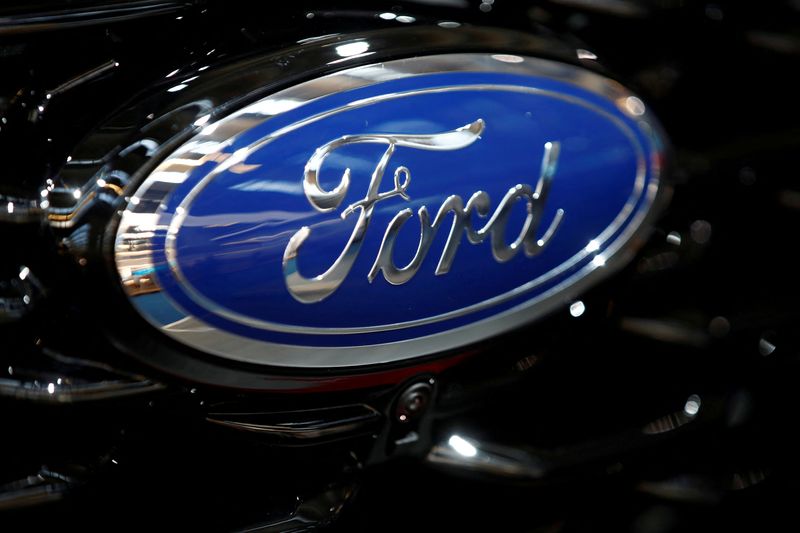By David Shepardson
WASHINGTON (Reuters) -Ford Motor Co will pay $19.2 million to resolve allegations it falsely advertised real-world fuel economy and payload capacity for some hybrids and pickup trucks, the Iowa Attorney General's Office said on Tuesday.
The covers 2013–2014 C-Max hybrids and 2011–2014 Super Duty pickups. In 2013, Ford lowered the advertised fuel economy ratings on its C-Max hybrid by up to seven miles per gallon and sent checks to owners of $550 to make up the difference in fuel costs.
"For years, Ford advertised impressive fuel economy and payload capacity for its cars and trucks,” Iowa Attorney General Tom Miller said. "Unfortunately, these figures were not based in reality, leaving customers with vehicles that did not meet their standards."
The settlement, with 40 states and the District of Columbia, prohibits Ford from making false or misleading advertising claims concerning estimated fuel economy or payload capacity of a new motor vehicle. Ford did not admit wrongdoing.
Ford said it was pleased the issue was "closed without any judicial finding of improper conduct. We worked with the states to resolve their concerns and in the process limited additional investigative costs and legal expenses for all parties."
Ford misrepresented the distance consumers could drive on one tank of gas, asserted driving style would not influence vehicles’ real-world fuel economy and claimed superior real-world fuel economy compared to other hybrids, Acting New Jersey Attorney General Matthew Platkin said.
Platkin said Ford ran deceptive advertisements called the “Hybrid Games", narrated like an Olympic sport that depicted the Ford C-Max outperforming the Toyota Prius in a series of videos. Toyota declined to comment.
The states allege that Ford used a deceptive methodology for reclaiming the "Best in Class" payload capacity after other trucks had surpassed Ford.
"In calculating the maximum payload capacity of its vehicles, the investigation found, Ford employed a truck configuration it did not actually intend to sell to individual buyers – one that omitted such standard items as the spare wheel, tire and jack, radio, and center console (which was replaced by a mini-console)," Platkin said.

As a result, "Ford was able to add additional pounds to the maximum advertisable payload capacity of its Super Duty truck -- just enough for Ford to reclaim the title of 'Best-in-Class' for payload."
In 2021, Ford 12,000 2020 F-350 trucks because they had incorrect payload values. The automaker said a study found they may have been overstated by 78 to 900 lbs.